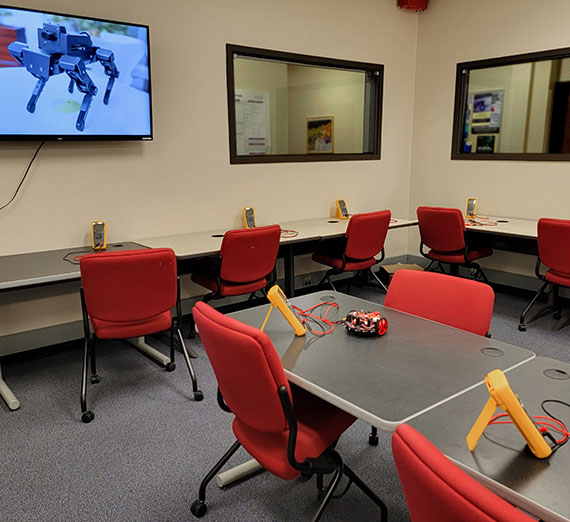
With Gonzaga's Robotics minor, a student from any major can study Robotics, giving you an interdisciplinary edge in this wide-ranging and fast-growing field.
Let your major guide you in your choice of specializations, opening doors to new careers.
Let your major guide you in your choice of specializations, opening doors to new careers.
The minor is as versatile as the robotics field! Multiple industries use robotics, including aerospace, agriculture, healthcare and defense.
Robotics is also a Concentration for Electrical Engineers or Computer Engineers. These are the only majors that cannot take Robotics as a Minor.
What can you do with Robotics?
Someday, the question will be 'What *can't* you do with Robotics?' These systems mesh with knowledge and expertise from almost every field. For example:
- Health Care and Human Physiology needs healthcare AI developers, analysts for medical imaging and bioinformatics, and clinical research data scientists.
- Neuroscientists have helpful insights for developing human-like cognitive abilities, such as recognizing emotions, understanding natural language, and reasoning.
- Computer Science specialists can create performance analysts and architects for computer systems and embedded systems.
- Mechanical engineers design a robot's physical structure and movement. Material science specialists develop lightweight, durable, and flexible materials to improve a robot's performance and efficiency.
- Biomedical engineers develop robotic systems for surgery, rehabilitation, and prosthetics.
- Environmental scientists develop robots for precision farming and environmental monitoring.
- Business professionals and entrepreneurs bring technology to the market, developing strategies, identifying opportunities, and securing research & development funding.
- Communications writers translate complex information into clear language to inform the public, either for news reports/technology blogs, user manuals and investor documentation, or robotic product marketing.
- Psychologists and Biologists contribute to understanding behavioral ecology or human-robot interaction, user preferences, and the emotional impact of robots on individuals and society.
- Law, Philosophers and Ethicists are already discussing robot rights, accountability, data privacy, and ethical implications of autonomous systems. Those discussions should be based on a realistic, hands-on understanding of the technology.
See the full program requirements in the current Catalog.




